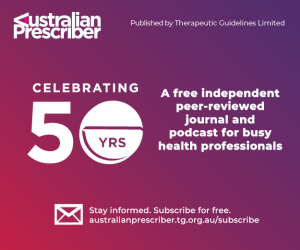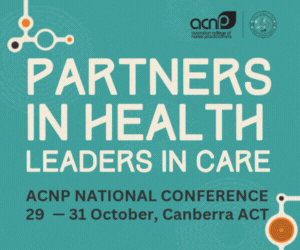Work contributes to positive mental health and wellbeing. It provides structure, purpose, a sense of identity and self-worth. But what happens when the work is having an adverse effect on personal health and wellbeing? What strategies can be employed to stave off psychosocial stressors of the job?
“I think one of the biggest risks is that of the work and the sort of experiences confronted in the workplace: death and trauma, aggression and conflict, loss and the unexpected,” says Glenn Taylor CEO of the Nursing & Midwifery Health Program Victoria.
“We have that hyper-awareness that we all need when we work in the workplaces we do: to react to those situations that require us to be always primed, ready to go to respond. But long term it has a spiritual, emotional effect that can be quite destructive.”
If you are switched on all the time, aware for crises to respond to, it is difficult to switch off, says Mr Taylor, which can lead to anxiety, depression, and psychological distress.
“You may have been a calm, insightful person and over the course of time, say 12 months or longer, your moods have changed and you may be more hyper-vigilant.”
One thing that is common amongst nurses and midwives experiencing symptoms of psychological distress is compassion fatigue, says Mr Taylor.
“The abnormal – death, trauma, horror – becomes normal. If you work in a trauma centre then death and dying is what happens but when you leave the most important thing is that you can leave it behind.
“What happens with compassion fatigue is the unrelenting demands of our working lives as nurses and midwives and the cumulative wear and tear comes at a cost to the individual. That cost has a physical and psychological response.
“It can be tiredness, lethargy, lack of motivation, lack of inspiration and hope – where you have just been sapped of your will. People often get on with their work but lack the vitality.”
Reflection
“Some people walk out the door and work is gone. Other nurses, say junior nurses can take it home with them,” says Mr Taylor.
For the latter, he suggests if possible using travel time home to reflect on the day.
“If you’re in your car and it’s too distracting no, but if you travel by tram or train then go through the day and think about the role you played. Go through your workday from 7am to 3pm and do an audit. What responsibilities did you have and check them off. Most nurses do medication rounds, did I finish those rounds? Was that a good conversation? Was that a good outcome?
“You can then feel you completed your activities and did ok or if you forgot something you can call work if you need to. You can shred yourself away, now going to live a life outside of work.”
Closing off your day
Have a way of closing off your day, Mr Taylor suggests. “Some people have a shower, others go for a walk. Some people do something meaningful. Download apps and do some mindfulness meditation. Compartmentalise your day, put work away and focus on your family and friends.”
Do something for ‘time out’ for 10-15 minutes a day says Mr Taylor. “Where you are not responsible for anything or anyone – it’s your own time to be selfish. Whether that’s connecting with family or friends if it gives you joy and happiness, or hobbies, interests or pursuits.”
Work satisfaction
This is the pleasure that you derive from being able to do your work, says Mr Taylor.
What’s positive about your work, your colleagues, and the people you care for?
“In an ideal world, this should outweigh compassion fatigue. Some people come to us lacking hope. We get them to identify something they did that was commended by a colleague or management or a compliment from a patient or relative. Something reasonably special that reminds them why they got into what they do and for them to feel good at what they do.”
Mr Taylor suggests nurses and midwives use a success inventory. “Write down in dot point and put in notes, on your phone and look at it when you are having a bad day or feeling down. It’s about focusing on what you do have, not what you don’t have.”
Reflective practice
This is a more formal debriefing than a personal inventory of your day. Reflective practice is something that all nurses and midwives should do, says Mr Taylor.
“Most novice nurses have it built in to their training. It’s basically to debrief – to reflect on the role we have played and the work that we have done.”
Reflective practice can be done with another colleague, a mentor or supervisor that we can talk to about particular events, someone that can offer support from an experience.
“Usually this is someone you have lined up to talk with in an unplanned adverse event, such as being assaulted. You need to have someone who can handle this sort of situation.” It might be someone you went to uni with, or who is a ward unit manager, or a work colleague, or someone who works on a different ward in the same hospital environment.
Mr Taylor suggests having at least a couple of mentors/colleagues/supervisors so that you do not rely on one person.
“This is really important but also in an ideal world that you have people lined up. Someone you can say to “you have a lot of experience and we have some rapport, if I needed support or needed to talk with someone after a bad day, would you be available? So that you have already prepared someone if the situation arises later.”
Mr Taylor acknowledges this is heavily reliant on trust and rapport and is well worth it.
Ask for help
Mostly we don’t ask for help until something happens, Mr Taylor says.
“Some people recognise the signs at the first red flag. But for many of us, there’s an event, incident, disciplinary process, fight, breakdown or break up.” “It’s generally a slow burn.
It’s very important to check in with yourself, have family and trusted colleagues that will ask you ‘Are you okay?’ ‘You seem out of character or out of sorts?’ “If you can have those few trusted friends or colleagues that can tap you on your shoulder if your behaviour isn’t consistent with how you are normally or you don’t seem right. If you set it up now and do not wait until you are in a situation or place because you never know when you may need that support or help.”









One Response
Speaking from my own experience this article is very true .
If only I’d read it years ago. Had that been the case I may still have my job today my house my life my self worth and my dignity etc etc etc .. I have now been house bound for 4 years after having a complete mental emotional and physical breakdown .. my pain in life is now ongoing. I worked as an Aged care nurse for 5 years then became an EEN and continued in the same place for another 5 years . Then was sacked due to a couple of silly mistakes my behaviour had change a little . Work load was just too much I unfortunately was in continual pain had undiaguised depression nd anxiety … all of this could have been felt with appropriately had I had things in place as above suggests .
If only
Jenn Seal